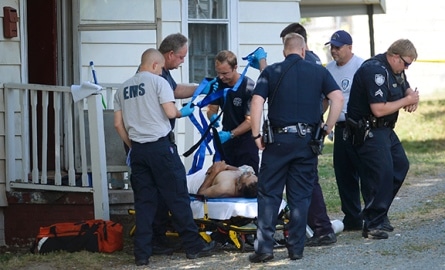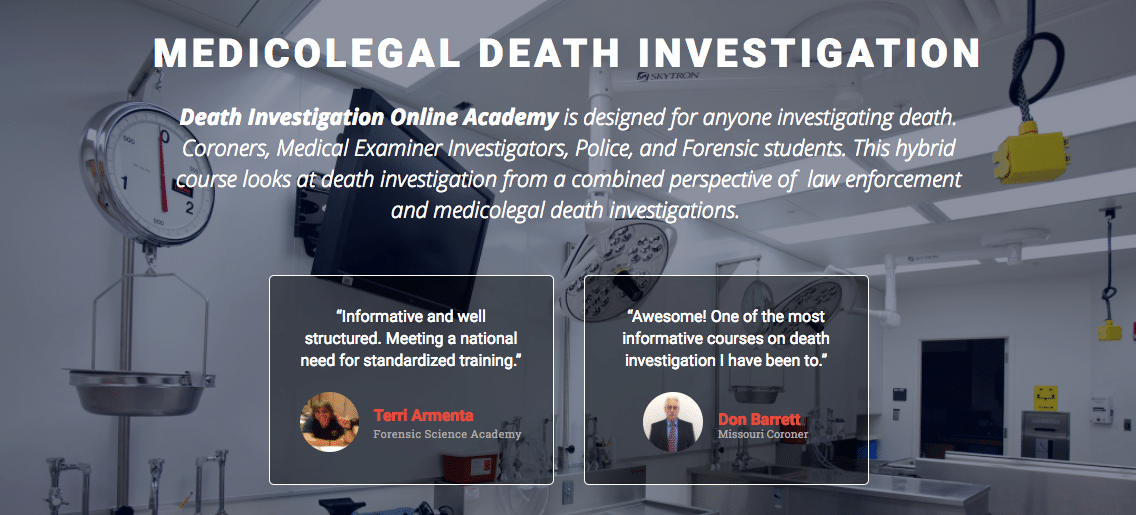 The burden of dealing with tragedies associated with the day-to-day duties of police officers, coroners, and medicolegal death investigators, often remains unspoken and follows the officers into their off-duty and personal lives. Failure to recognize and provide an acceptable outlet for the disappointment and frustration felt by officers and investigators at the end of their shifts can lead to:
The burden of dealing with tragedies associated with the day-to-day duties of police officers, coroners, and medicolegal death investigators, often remains unspoken and follows the officers into their off-duty and personal lives. Failure to recognize and provide an acceptable outlet for the disappointment and frustration felt by officers and investigators at the end of their shifts can lead to:
- Alcohol and/or drug abuse
- Problems with personal relationships
- Self-rejection,
- Disillusionment and Depression
- Job loss
- Even suicide.
If asked what bothers them the most about their profession, many will offer concerns such as a lack of public respect, lack of manpower or equipment to do their job effectively, or a general frustration over the perceived ineffectiveness of the judicial system. Seldom will officers open their hearts to discuss the pain and frustration that stems from dealing with the injury, anguish, and distress suffered by the victims? Many officers are haunted by the effects of trying to resolve problems they encounter in their communities and with their victims only to find that the solution is beyond their control.
Officers do not discuss the sorrow they feel after having to notify loved ones about the loss of their spouse or child because of a vehicle collision. Nor do they discuss the tears that follow officers after having held an infant in their hands trying to breathe life back into the tiny body only to find that despite all of their training and practice their efforts are futile. Or the frustration of dealing with the children of a crack addict or an abusive parent who time after time evades the help of a system overburdened with cases that, left unresolved, ensure continued problems for generation after generation to come.
These unresolved and un-dealt with feelings will lead an officer or investigator to suffer a form of PTSD called ‘Secondary PTSD’ or compassion fatigue.
 Free 12 week email course. Receive a new training and video to your inbox every week for 12 weeks. This is real training and will give in detailed actionable steps to becoming a better investigator. Sign up today at:
Free 12 week email course. Receive a new training and video to your inbox every week for 12 weeks. This is real training and will give in detailed actionable steps to becoming a better investigator. Sign up today at:
 Medicolegal Death Investigation – Online Academy
Medicolegal Death Investigation – Online Academy

The Death Investigation Training Academy was founded to play an integral role in the death investigation community. The need for quality accredited training is in short supply and high demand. Using a combination of classroom training, live on site scenario exercises, and web-based training, the Death Investigation Training Academy is filling the need of 21st-century investigators.




